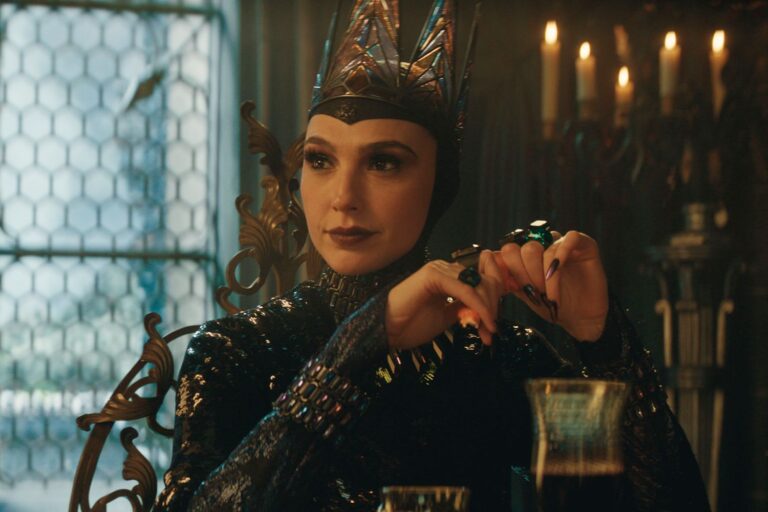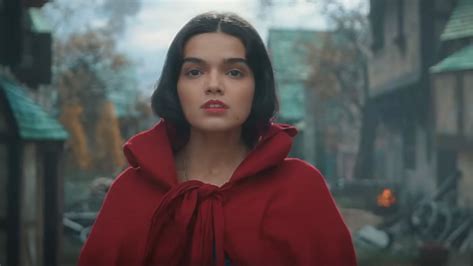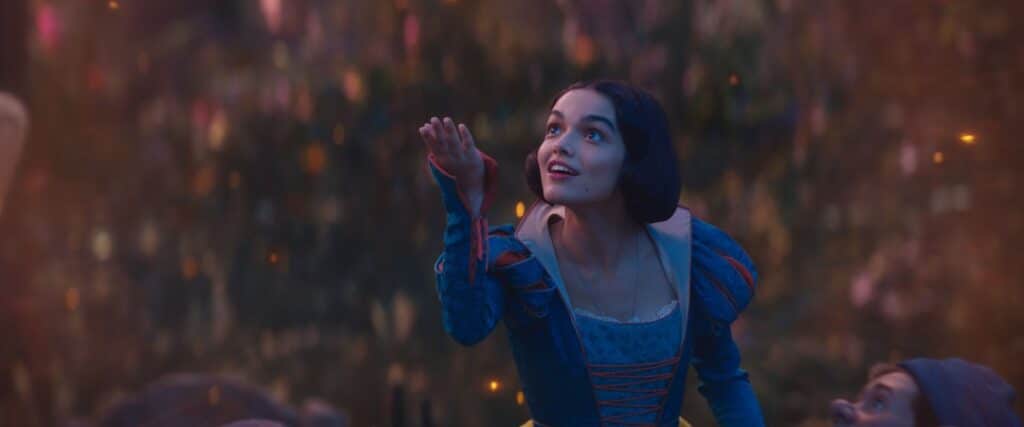
The original animated “Snow White and the Seven Dwarfs” (1937) is one of the most consequential films in cinema history. It was Disney’s first full-length animated feature and is widely credited with saving the company financially. The film included more than 250,000 hand-drawn images, and introduced a now-iconic fairy tale structure: a beautiful young woman falls under a spell after eating a poisoned apple and is awakened by a prince’s kiss.
Now, Disney’s latest adaptation of “Snow White” hit the theaters, but not without a big dose of drama. Beyond the film’s content and creative choices, “Snow White” found itself in the crosshairs of a different kind of controversy — one rooted in geopolitics.
As tensions flared globally, the casting of outspoken Israeli actress Gal Gadot and Rachel Zegler, a non-Jewish actress who has expressed support for Palestinians, sparked debate far beyond the realms of cinema. Amid a heated cultural moment, their public positions — and the way they were perceived together — added another layer of complexity to the film’s rollout. Here’s a closer look at how the Israel-Palestine discourse seeped into the conversation around “Snow White” and whether the film is worth trekking out to the theater to see.
“Snow White” controversy over Israel
Gal Gadot is Israeli and has publicly supported Israel and its war against Hamas. Zegler, by contrast, has posted online in support of Palestine. Though there is no evidence of personal animosity, some speculated that the two appeared tense while presenting at the Oscars. That said, such rumors remain unconfirmed.
On March 19, a day before the film’s release, Gadot received her star on the Hollywood Walk of Fame. In her speech, she said: “To all the young women out there, the young people, especially young girls watching, if a girl from Rosh Ha’ayin can get a star on Hollywood Boulevard, anything is possible.”
Reportedly, there were minor confrontations between pro-Israel and pro-Palestinian protesters near the event.
What was the casting heated controversy about?
Before the release of the live-action adaptation, Zegler, who plays Snow White, made headlines for comments about updating the character. In one interview, she said: “It’s no longer 1937. She’s not going to be saved by the prince, and she’s not going to be dreaming about true love. She’s dreaming about becoming the leader she knows she can be.”
She also criticized the original film, calling it “weird” and claiming that the prince in the animated version “literally stalks her.” These statements drew backlash online, with some assuming the film would completely discard the original’s romantic elements in favor of a modern feminist narrative.

To the surprise of many critics and fans, the finished film retains more traditional elements than anticipated. Whether this was always the plan or the result of reshoots or Zegler was simply stirring the pot is unclear, but the story balances old and new more gracefully than detractors expected.
Zegler, who is of Colombian and Polish descent, also faced criticism from some who claimed that casting a Latina actress in a role titled “Snow White” was inappropriate. To me, an actor’s ethnicity should be secondary to their performance. If someone embodies the role, they’ve done their job. Similarly, the casting of Black actress Halle Bailey as Ariel in 2023’s “The Little Mermaid” faced comparable backlash, despite the title having no racial implications.
Gadot’s casting as the Evil Queen also ruffled the feathers of the anti-Israel crowd. For years, many who are anti-Israel have boycotted the actress’s projects because she previously served in the Israeli Defence Forces as a yoga instructor; “Wonder Woman” was not shown in multiple Middle Eastern countries over her Israeli background.
Ahead of the film’s premiere anti-Israel activists planned to boycott “Snow White” over Gadot’s role; some supporters of the Jewish State also planned on boycotting over Zegler’s comments. In response, many on both sides vowed to see the film to show public support for the actresses and their respective political stances.

CGI “dwarfs” instead of real actors
The original 1937 film was titled “Snow White and the Seven Dwarfs,” but the term “dwarf” has become a point of contention in modern discourse. Actor Peter Dinklage, best known for playing Tyrion Lannister in “Game of Thrones,” criticized the premise as outdated and offensive, calling it a “f–king backwards story” on the WTF with Marc Maron podcast.
In response, Disney stated it would take “a different approach.” As a result, the seven dwarfs in the film are reimagined using CGI, which sparked disappointment from some actors with dwarfism who viewed the film as a rare opportunity for authentic representation.
Why “Snow White” works well
Zegler delivers a solid performance—at times emotionally engaging, though she underplays some moments. For example, in the scene where the Huntsman threatens her, the fear feels a bit muted. Still, her singing voice is exceptional, and her musical numbers are a highlight.
Gadot, meanwhile, goes all-in with her portrayal of the Evil Queen, leaning into theatrical villainy with flair. The role isn’t meant to be subtle, and she makes it fun to watch. A new subplot involving Snow White investigating her father’s disappearance adds intrigue and fits nicely within the story.
Emilia Faucher voices the young Snow White beautifully, making the film relatable for children. There are no intense scares or violence, and the visual effects, especially near the end, are impressive. The costumes are vibrant, and a surprise dance sequence pays homage to the original’s charm.
A standout song
Songwriting duo Benj Pasek and Justin Paul—best known for “La La Land,” “Dear Evan Hansen,” and “The Greatest Showman” — deliver another strong soundtrack. Pasek, notably, is the eighth Jewish songwriter to achieve EGOT status (Emmy, Grammy, Oscar, Tony).
Among the new songs, “Waiting on a Wish” is a standout, with Zegler delivering a magical performance. While the new songs might not stick in your head the way “Heigh Ho” or “Whistle While You Work” did, they’re high quality. Gadot also impresses vocally in her villainous number “All Is Fair.”
What doesn’t work
The CGI dwarfs look polished but lack memorable personalities — except for Doc, well-voiced by Jeremy Swift. Live-action actors would have brought more depth and humanity to the roles. Oddly, a group of bandits is also introduced, creating a confusing narrative detour. It feels like Disney wasn’t sure whether to use the bandits or the dwarfs — and ended up awkwardly using both.
Andrew Burnap plays Jonathan, a new character meant to fill the “prince” role. He has a pleasant singing voice and some charm, but lacks strong chemistry with Zegler. A more charismatic or recognizable actor might have helped. Directed by Marc Webb (“500 Days of Summer,” “The Amazing Spider-Man”), the film is visually striking but would have benefited from more backstory for the Evil Queen — perhaps a brief exploration of how she became so twisted. That would have added emotional depth and allowed Gadot more time to shine.


